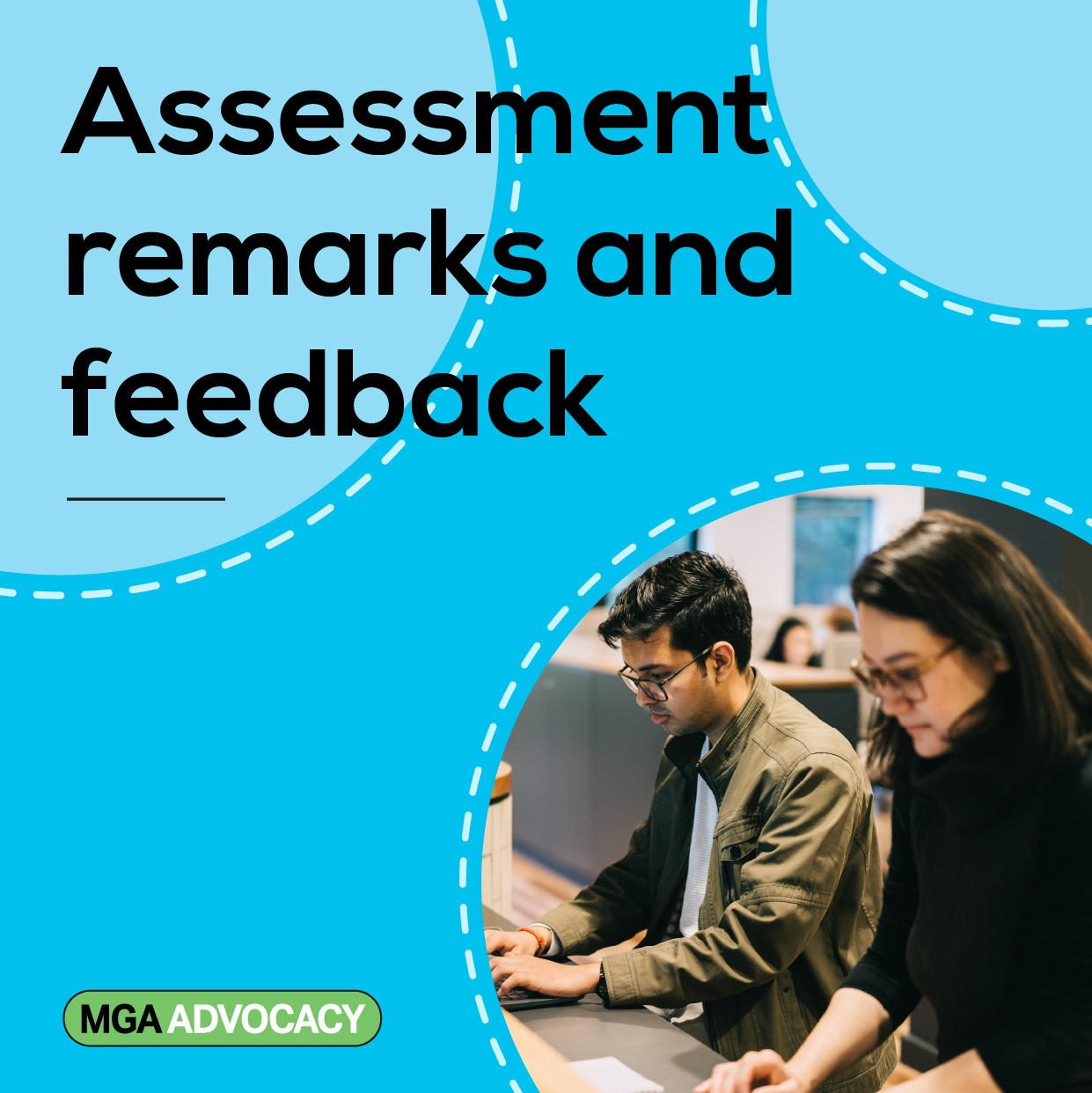Assessment remarks and feedback
Not happy with a mark or confused about your results for an assessment? Here’s what you can do.

Sometimes with uni assessments, you may not receive the mark you were hoping for or that you thought you deserved. Under University policy, students do not have an automatic right to have an assessment remarked, but there are some avenues you may be able to explore if you’re seeking extra feedback or a remark due to an error in the marking of your work.
Below are some tips for navigating this process.
Request additional feedback from your teacher.
Before seeking a remark, you should go directly to the person who marked your assessment and ask for further feedback. From there, you may be able to identify if/where an error has been made in the calculation of your marks and decide whether you would like to appeal for a remark on that basis. More on this process can be found in Section 5 here.
Research your faculty’s procedures and policies.
Some faculties have specific procedures in place for seeking feedback/remarks. These include:
Visit your faculty’s webpage if it is one listed above to see if/how you can request feedback.
If you believe and can establish that an error has occurred in the calculation of your mark, you may be able to request a remark on that basis.
You must make this request in writing, clearly outlining and identifying the error(s) you believe have occurred. Please note that a student cannot request a correction of their mark on the basis that they simply disagree with that mark or feel that the feedback was inadequate.
For assessments during the teaching period (not final assessments), a remark request must be sent to the Chief Examiner within 10 working days of the results being released.
If your request for a remark is declined, you may be able to escalate it as a Level 3 formal complaint.
However, you will need to identify which part of Marking and Feedback Procedure was not followed properly. A formal complaint of this nature does not apply to the following circumstances:
- Circumventing the rules relating to correcting an assessment mark as set out in the Marking and Feedback Procedure.
- Seeking a review of a marking decision involving academic merit, academic judgement or academic competency.
Contact an MGA advocate.
We saved the best for last! Before you initiate any of the processes outlined above, we strongly encourage that you speak to an MGA advocate who can guide you through your options and advise you on which path might be most suitable for you.
Do you have more questions?
Get in touch with an MGA advocate for free and confidential advice! We can help guide you through all your options for seeking extensions and special consideration. Email us at mga-advocacy@monash.edu - the sooner the better!